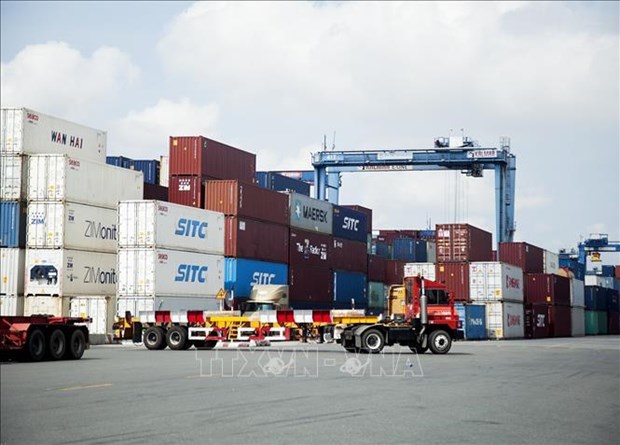Vietnamese economy likely to expand by 6.5% in 2024: Economist
The Vietnamese economy is likely to expand by 6-6.5% in the base scenario, with even recovery recorded in all sectors of agriculture, industry, construction and services, Dr. Can Van Luc, a member of the National Financial-Monetary Policy Advisory Council, has predicted.
 Illustrative image
Illustrative image
The economist held that the country's economic recovery seen in late 2023 will motivate the economic recovery and development throughout 2024.
This year, inflation will continue to be kept under control, at about 3.5-4%, he said, adding that the country's exports will bounce back, reaching a growth rate of 5% this year.
In terms of investment, foreign direct investment is hoped to maintain the rising trend, while public investment disbursement is predicted to reach the similar level like 2023, Dr. Luc said.
The economist asserted that private investment will be encouraged this year, with a rise of about 6%.
Dr. Luc held that 2024 will be a tough year for the world economy with complicated geopolitical risks and lingering wars as well as various problems in security and energy security.
He recommended that this year, Vietnam should focus on analysing and forecasting the world situation to give suitable response measures.
The country should continue completing institutions, by adopting the Land Law (revised), the Law on Credit Institutions (revised) and a number of other important laws related to tax and the management of State capital at enterprises. Along with the laws approved in 2023, this will be an important legal foundation for the land, real estate, financial, banking and labour markets to develop in a more stable and sustainable manner in the future.
At the same time, it is necessary to issue legal frameworks for new economic and business models such as digital economy, green economy and circular economy as well as energy transition, he stressed.
Dr. Luc underscored the need to continue maintaining underway monetary policies, while cautiously and flexibly loosening the policy to achieve the growth target, and strengthening policy coordination to better control interconnected risks among banking, securities, insurance, and real estate.
Meanwhile, it is necessary to better promote traditional growth drivers such as export, investment and consumption, while drastically reforming the economy, especially the restructuring of businesses and credit institution with weak performance to ensure effective mobilisation and allocation of resources, the expert said./.
VNA
 Criteria of 2024 projected to early accomplishment
Criteria of 2024 projected to early accomplishment
 Import-export turnover reaches nearly US$53 billion
Import-export turnover reaches nearly US$53 billion
 Binh Duong vibrant with e-commerce week and super promotional month
Binh Duong vibrant with e-commerce week and super promotional month
 Training workshop on restructuring of industry and trade successfully organized
Training workshop on restructuring of industry and trade successfully organized
 Bank encourages checking transactions on applications
Bank encourages checking transactions on applications
 Ben Cat concentrates efforts to fulfill socio-economic development targets
Ben Cat concentrates efforts to fulfill socio-economic development targets
 Forstering a logistics center with regional connection
Forstering a logistics center with regional connection
 To clear bottlenecks, make good use of FTAs
To clear bottlenecks, make good use of FTAs
 Vietnam balances supply and demand to prepare for Tet shopping season
Vietnam balances supply and demand to prepare for Tet shopping season
 Developing Bac Tan Uyen district into a town in the period 2030-2040
Developing Bac Tan Uyen district into a town in the period 2030-2040







